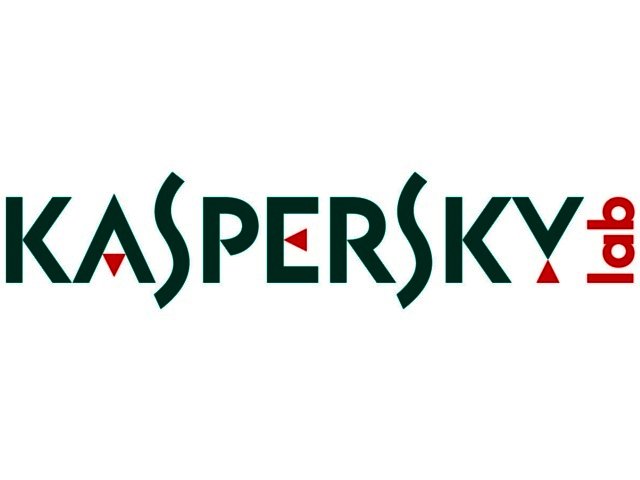PREVIOUS ARTICLENEXT ARTICLE
NEWS

Kaspersky predicts main cybercrime threats in year ahead
By Ryan Noik 9 January 2012 | Categories: news
Kaspersky Lab has highlighted some of the main security trends of the past 12 months while simultaneously predicting the major new features on the security landscape, with the release of its new Cyberthreat Forecast for 2012 report.
Costin Raiu, Director of Kaspersky Lab's global research and analysis team explained that the following stories, which dominated 2011, gave the company an idea of what to expect in year ahead.
He asserted that the most significant stories of the last year included the following:
- The Rise of ‘Hacktivism’ emerged as one of the major trends of 2011, and is expected to continue into 2012.
- The HBGary Federal Hack demonstrated how weak passwords, old software systems plus use of the cloud created a security nightmare.
- The Advanced Persistent Threat confirmed the emergence of cyber-espionage as common practice among powerful state actors.
- The attacks against Comodo and DigiNotar also showed that trust in certificate authorities (CA) is under threat. The company explained that in the future CA compromises may become more widespread. It is also likely that more digitally-signed malware will appear.
- Duqu and Stuxnet were two of the ‘bullets of state-of-the-art cyber warfare, which may according to the company, indicate the beginning of a ‘cyber Cold War.’
- The Sony PlayStation Network Hack highlighted the new perils hidden in the cloud. Personally Identifiable Information is conveniently available in one place, accessed over fast Internet links; ready to be stolen in case of any security issues, elaborated Kaspersky.
- Botnet Takedowns and the battle against cybercrime showed cyber gangs that their scams are no longer risk-free. However, Kaspersky added that the battle revealed the “vast limitations of today’s legal systems when it comes to a coordinated and effective approach to cybercrime”.
- The Rise of Android Malware. Kaspersky explained that several factors make Android vulnerable to cybercrime including rapid growth, freely available documentation about the platform, and weak screening at Google Market, which made it easy to upload malicious programs.
The year ahead
With the above in mind, Kaspersky Lab warned that governments and large corporations internationally should be wary of a growing cyber menace in 2012.
The company elaborated that it anticipates a dramatic increase in the number of targeted attacks on state institutions and large companies. It is also likely that a wider range of organisations will bear the brunt of the expected onslaught.
“At the moment, the majority of incidents affect companies and state organisations involved in arms manufacturing, financial operations, or hi-tech and scientific research activities. In 2012 companies in the natural resource extraction, energy, transport, food and pharmaceutical industries will be affected, as well as Internet services and information security companies,” warned Alexander Gostev, the author of the Cyberthreat Forecast for 2012 report.
Additionally, attacks will range over more of the world than ever before, spreading beyond Western Europe and the US and affecting Eastern Europe, the Middle East and South-East Asia.
Changing responses
Kaspersky Lab further predicted that attackers will have to change their methods in response to the growing competition among the IT security companies that investigate and protect against targeted attacks.
The company explained that increased public attention to security lapses will also force the attackers to search for new methods. The conventional means of attacks, that involve email attachments with vulnerability exploits will gradually become less effective, while browser attacks will gain in popularity, it continued.
The Kaspersky Lab forecast asserted that “hacktivist attacks on state organisations and businesses will continue in 2012 and will have a predominantly political agenda”. Gostev believes this will be an important trend when compared to similar attacks in 2011. However, he added that hacktivism could well be used as a diversionary tactic to conceal other types of attacks.
Mobile threats
In terms of mobile threats in 2012, Kaspersky Lab expects that Google’s Android OS will continue to be the target of choice for the mobile malware market. The emergence of the first mobile drive-by attacks and mobile botnets are also forecast.
“Mobile espionage will become widespread and will most probably include data theft from mobile phones and the tracking of people using their telephones and geo-location services,” concluded Kaspersky.
If even a few of Kaspersky's predictions are accurate, then 2012 will be accompanied by renewed and greater vigilance from users, governments and large corporations alike around their online and digital security.
USER COMMENTS
Most Read Articles
Read

Magazine Online
TechSmart.co.za is South Africa's leading magazine for tech product reviews, tech news, videos, tech specs and gadgets.
Start reading now >
Download latest issue
Have Your Say
What new tech or developments are you most anticipating this year?
New smartphone announcements (46 votes)
Technological breakthroughs (29 votes)
Launch of new consoles, or notebooks (14 votes)
Innovative Artificial Intelligence solutions (29 votes)
Biotechnology or medical advancements (24 votes)
Better business applications (160 votes)



